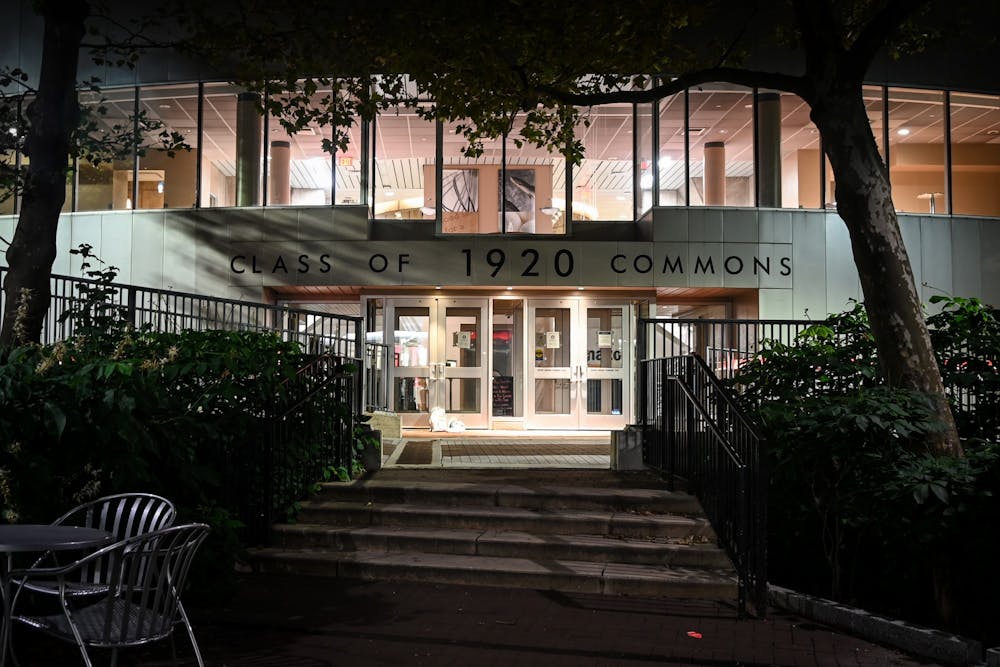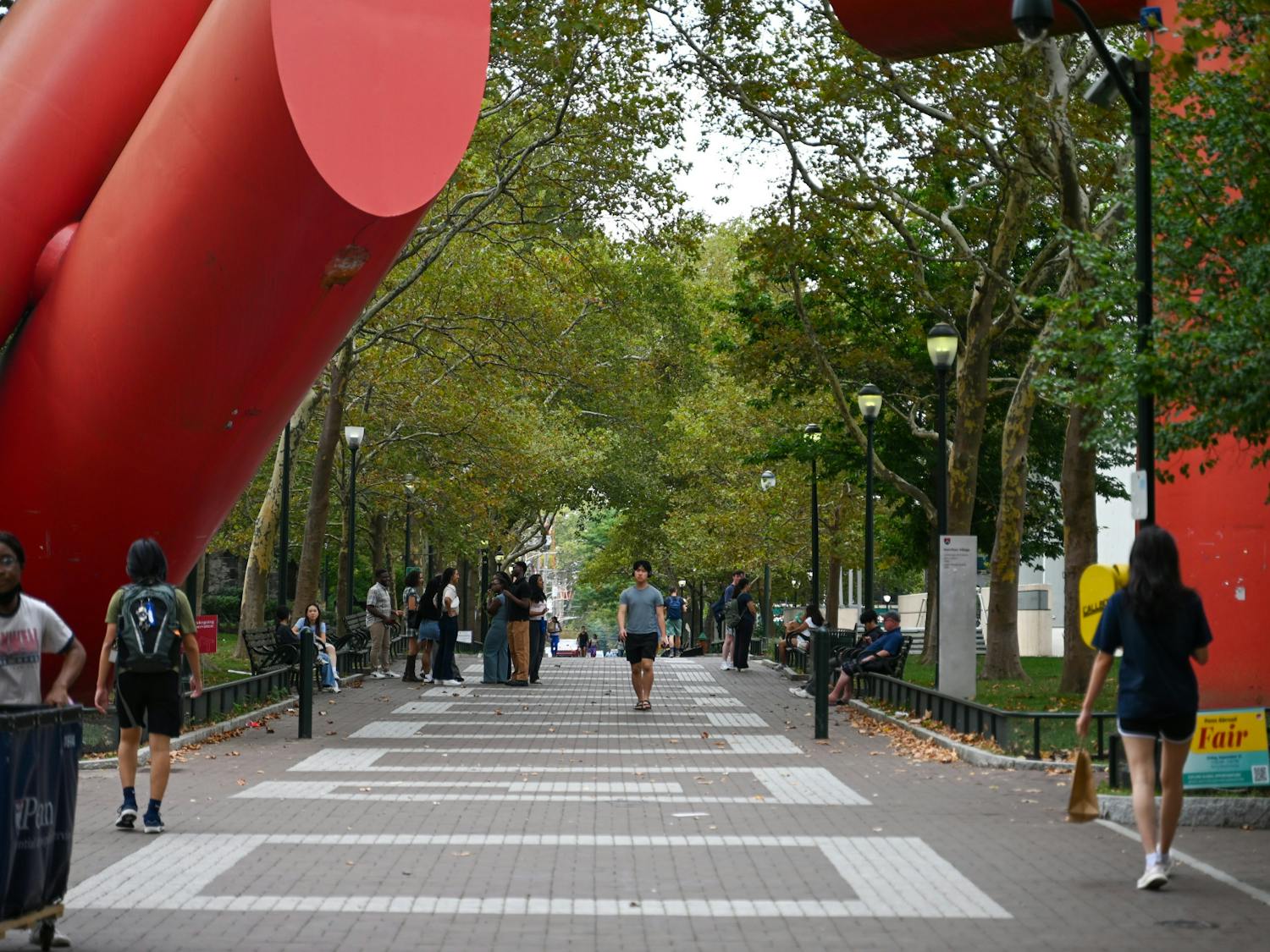Penn Dining invited residential advisors and graduate associates to partake in an indoor dining pilot program over the weekend – but most RAGAs on campus declined to participate.
Six RAGAs participated in the pilot program according to Penn Business Services Director of Communications and External Relations Barbara Lea-Kruger, although there are around 95 of them currently living on campus. Many RAGAs did not feel safe enough to partake in the indoor dining program, citing coronavirus risk concerns.
Lea-Kruger wrote in an email to The Daily Pennsylvanian that the pilot program was a success, and that anyone with a dining plan is now eligible to eat inside 1920 Commons, Penn's only open dining hall this semester.
"The app worked as anticipated. We were able to successfully test the process, We felt the pilot showed we were ready to offer the option to all students on a dining plan this week," Lea-Kruger wrote. "We anticipate that should we open more locations, we could implement seating reservations using the process we are implementing now.
Penn Dining sent an email to all RAGAs on Oct. 7 inviting them to participate in a four-day pilot program in which they would be able to sign up for a 30-minute time slot to eat their meals indoors at Class of 1920 Commons. RAGAs were instructed to make a reservation at the dining hall using the Penn Eats mobile app, which they had already been using to pick up to-go meals.
College senior and RA Zoe Osborne did not participate in the pilot program and said she did not need to read the email from Penn Dining to know she would not participate.
"It feels like Penn wanted [RAGAs] to be the guinea pigs to test out this program that may or may not work so that they can possibly bring people back for the spring [semester]," Osborne said.
She said an RA sent a message with a similar sentiment to a group chat with the approximately 95 RAGAs currently living on campus.
RELATED:
Some RAs and GAs plan to quit after housing admin. silence their fall concerns in meeting
Vegan, vegetarian students say 1920 Commons food lacks variety and freshness
"Serious question," the message, which eventually garnered 16 likes, read. "Am I the only one feeling like we are subjects to test different 'safety' measures they can place in order to bring people back on campus next semester?"
Osborne said she saw no reason to participate in the dining program, citing her personal health, the health of her friends, and the health of the dining hall workers.
Wharton junior and RA Cassie He, who also did not participate in the program, said she did not see the appeal of sitting and eating in 1920 Commons for only 30 minutes.
"If you have to schedule beforehand and are restricted in all these ways, I do not really see the point," He said. "I feel like 30 minutes is not enough time and honestly just did not see any reason to participate."
He said she has been walking to 1920 Commons usually once a day to pick up pre-packaged takeout meals, which she then eats either in her dorm or outside.
"The grab-and-go system has worked well so I didn't really see any reason to eat inside," He said.
In the email sent to RAGAs, Penn Dining outlined a seven-step process for eating in 1920 Commons.
After making a reservation, RAGAs received an email containing a QR code to scan upon arrival at 1920 Commons. The QR code served as both a mechanism for checking in to the dining hall as well as charging a meal swipe.
After scanning in at the dining hall, RAGAs received a number corresponding to a table at which they were required to sit. According to the email from Penn Dining, RAGAS were asked to "collect [their] meals and then go to the seating area and show the table number to the staff member."
When the 30-minute time slot ended, RAGAs received another reminder through the Penn Eats app instructing them to leave through the designated exit.
For College senior and RA Katherine Hancin, this process was far too complex — particularly given the ease of grab-and-go dining — and only made her decision not to participate even easier.
"I knew pretty much as soon as I opened the email that I was not going to participate," Hancin said. "There were a lot of steps to going in and then once you are inside, you only have 30 minutes to eat."
Osborne, Hancin, and He all said they did not know any RAGA who participated in the program and said there is a general sentiment amongst RAGAs that they are fed up with testing different programs for Penn.
He said Penn has used RAGAs throughout the fall semester to test a number of different programs, including the grab-and-go system and also the COVID-19 surveillance testing program.
"This type of thing happens to us all the time. I feel like Penn sees RAGAs as disposable," he said. "But Penn is also in a difficult position because it doesn't make sense for them to let everyone return to campus all at once, but still it is not great for us to be the 'guinea pigs.'"
Osborne said she feels that the University has continuously disrespected RAGAs and the work that they do, which played in to her decision not to participate in the program.
"[RAGAs] have been wronged enough times," she said. "We're not doing any more favors, including this [dining] pilot program, for the University."









